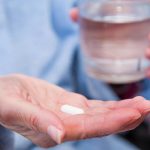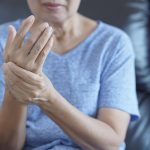
Getting essential vitamins and minerals during pregnancy can help a woman maintain healthy blood pressure into middle age, new research suggests. High levels of the minerals copper and manganese in pregnant women were associated with lower blood pressure decades later, as well as a reduced risk of high blood pressure, researchers reported. Higher levels of vitamin B12 also were associated with lower blood pressure in later life, according to findings published March 6 in the journal Hypertension. “Optimizing these essential metals, minerals and vitamins — particularly copper, manganese and vitamin B12 — during pregnancy may offer protective benefits against hypertension in midlife, an especially critical time period for women’s future cardiovascular risk in later life,” lead researcher Mingyu Zhang, an epidemiologist at Beth Israel Deaconess Medical Center in Boston, said in a news release. For the study, his team analyzed data from an ongoing long-term study of nearly 500 pregnant women recruited between 1999 and 2002. The women underwent blood testing during their pregnancy for their levels of healthy essential minerals, such as copper, magnesium, manganese, selenium and zinc, researchers said. They also were tested for levels of folate and vitamin B12. After nearly 20 years of follow up, researchers checked in again with the women, who’d now reached an average age of 51. The women’s blood pressure was tested during this check in, and… read on > read on >
















-150x150.jpg)

